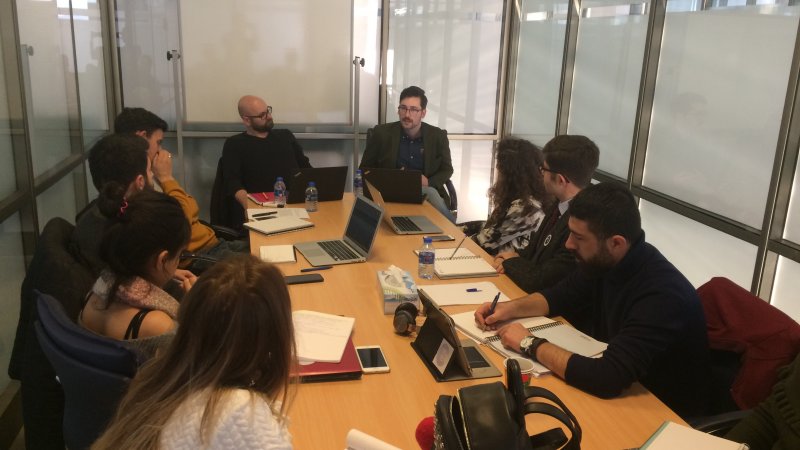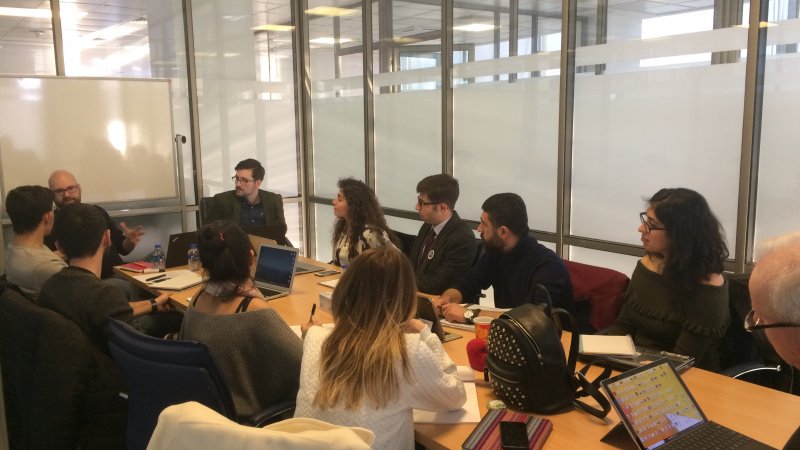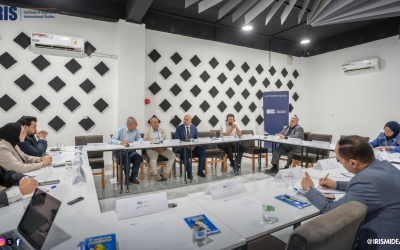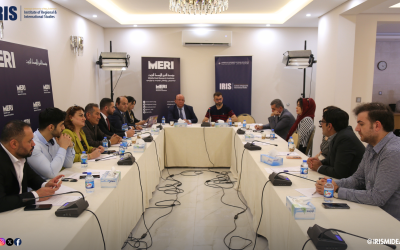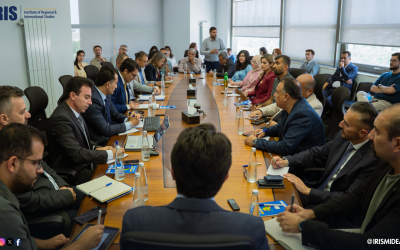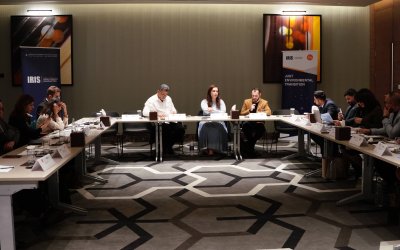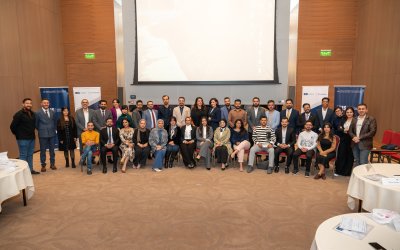On Tuesday, March 5, Philipp Rotmann and Mario Schulz, Associate Director and Research Associate at the Global Public Policy Institute in Berlin, hosted the second master class of the Peace and Conflict Fellowship focused on conflict analysis. The class began with a review of the required reading, “Violence in Context: Mapping the Strategies and Operational Art of Irregular Warfare,” which challenges the theoretical concepts upon which analysis and response to irregular warfare is predicated. It inspired students to question the terminology and analytical orthodoxy behind terms such as “insurgency,” “counterinsurgency,” and “hybrid threats” and provided a framework for the rest of the more Iraq-specific activities in the session.
After the initial review of the readings, Philipp and Mario posed 5 questions to the group to prompt them to choose and analyze a conflict actor active in Iraq:
- What is the group doing politically?
- How is the group exploiting domestic alliances?
- How do they use violence?
- How do they use non-violence?
- What is the role of internationalization?
With regard to the peshmerga, fellows focused on the tactics of the group in their fight for autonomy under the administration of Saddam Hussein. In particular, they noted that the peshmerga took advantage of the Iraqi government’s involvement in the Iran-Iraq war and later, an alliance with the U.S., to wage a political, military, and propaganda campaign for greater autonomy. For example, the peshmerga paired violent tactics, such as attacks on government facilities, guest houses of Saddam Hussein, and military bases, with non-violent propaganda tactics to cultivate nationalist sentiment through songs, books, poems, and support to youth and civil society groups.
The students who evaluated the PMUs focused on the groups’ strategies to gain support in the fight against ISIS. Unlike the peshmerga, who relied largely on nationalist sentiment, the PMUs cultivated support by invoking religious obligation and gaining legitimacy through the marjaiya--or Shia religious leadership. In addition to invoking a sense of responsibility to defend Shia shrines, they also exploited the high unemployment rate in much of southern Iraq to increase recruitment. Like the peshmerga, they relied on a network of domestic and regional alliances to maintain support. Given the disparate nature of the PMUs, they were able to create alliances with tribal leaders in rural areas, as well as a variety of religious and ethnic groups despite the majority Shia composition and broad support from Iran. Finally, the PMUs employed violence in the form of arrests, kidnappings, and killing of political opponents to expand and secure political and military control.

